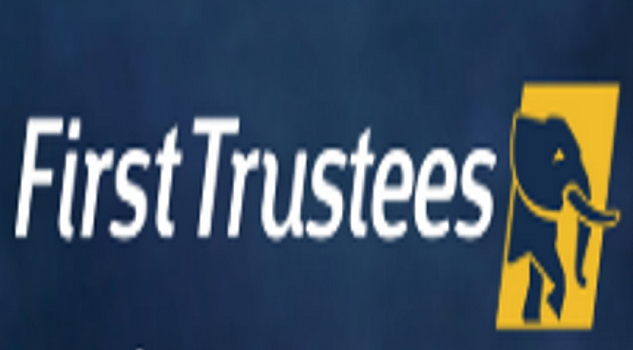General News
FG Begins ISPS Code Implementation
Sen. Idris Umar, minister of Transport said the the Federal Government has commenced the implementation of the International Ships and Ports Facilities Security (ISPS) Code in the ports nationwide.
The ISPS is an amendment to the Safety of Life at Sea (SOLAS) Convention (1974/1988) on minimum security arrangements for ships, ports and government agencies.
Having come into force in 2004, it prescribes responsibilities to governments, shipping companies and port/facility personnel to “detect security threats and take preventive measures against security incidents affecting ships or port facilities used in international trade.
Mrs. Yetunde Sonaike, deputy director, press and protocol, in the Ministry quoted the minister as saying that the implementation of the code became necessary so that Nigeria’s ports system would be safe and secured for the benefit of Nigerians and foreign investors in the maritime industry.
“Nigeria is a country that depends solely on oil; making the ports safe is of paramount interest to the present administration,” it added.
He said the appointment of the Nigeria Maritime Administration and Safety Agency (NIMASA) as the designated authority was part of the measures to address the identified gaps.
“Most process in dealing with the identified gaps would have commenced but not visible yet because of due process involved in implementing them,” he said.
Some officials of the U.S. Coast Guard (USCG) recently visited the minister to discuss the ISPS code.
The USCG delegation, led by Mr Tivo Romero, was in the country to ascertain the level of Nigeria’s compliance with ISPS code after the expiration of 90-day ultimatum given to the Federal Government by the USCG.
General News
Goodnews Naija Podcast Emerges as a Platform for Positive Nigerian Storytelling

Goodnews Naija Podcast has been identified as one of Nigeria’s podcast platforms to watch, gaining attention for its consistent focus on positive storytelling and uplifting narratives from across the country.

Launched on 1 October 2024, the podcast spotlights inspiring stories, progress-driven conversations, and everyday Nigerian wins often overlooked in mainstream media. With a weekly release schedule and a values-led editorial approach, Goodnews Naija has built a growing audience within and outside Nigeria.
“At a time when negative headlines dominate global perceptions, we believe positive Nigerian stories deserve global visibility,” said Host, Damilola Kehinde. “Goodnews Naija exists to balance the narrative by highlighting hope, resilience, and progress.”
According to Producer, Memunat Olayemi Oladepo, the platform was intentionally created to reshape how Nigerian stories are told. “Goodnews Naija was built as a counter-narrative,” she said. “We are deliberate about amplifying stories that reflect the resilience, innovation, and optimism thriving across the country.”
As global interest in African creators grows, Goodnews Naija Podcast is positioning itself as a platform contributing to a more balanced and human narrative about Nigeria.
General News
Security Forces Probe Use of Drones by Terrorists

The military high command at the weekend said it has commenced a full investigation into the use of drones by terrorists to carry out attacks.

This is part of ongoing efforts to end insurgency in the country.
Major-General Michael Onoja, director of Defence Media Operations (DDMO), , disclosed this in Abuja while briefing defence correspondents on the achievements of troops of the Armed Forces of Nigeria and other security agencies across various theatres of operation nationwide.
He said the investigation is being conducted in collaboration with other relevant security agencies to identify the sources of the drones and halt their deployment by non-state actors.
According to him, concrete actions are expected to emerge in the coming days or months, as agencies with the technical capacity to counter drone deployment have been fully engaged.
“We have reached an advanced stage in taking measures, in conjunction with other federal government agencies, to trace where these drones are coming from. I believe that in the next couple of days or months, concrete action will emerge on what we intend to do,” Onoja said.
In recent months, terrorists operating in the North East have increasingly deployed sophisticated drones in attacks on civilians and security personnel, raising concerns over the evolving tactics of insurgent groups.
The development has also generated questions among security experts and the public over how the drones are being sourced and the channels through which they enter the country.
Responding to allegations circulating on social media that soldiers manning checkpoints in Bauchi State were being compelled to remit weekly sums to their commanders, Onoja said the claims remained mere allegations.
He stressed that the military is a transparent institution and assured that investigations would be conducted if verifiable details were provided.
On the return of Nigerian refugees from Cameroon, Onoja said the development reflects the success of military operations in restoring security to affected communities.
“The military, in conjunction with the Federal Government, has done everything within its capacity to ensure the necessary security in those areas. The return of refugees is a clear measure of operational success,” he said.
On operational achievements, Onoja disclosed that within the month of January 2026 under review, troops across various theatres killed several terrorists, arrested 452 suspected terrorists, kidnappers and other criminal elements, rescued about 284 kidnapped victims, while 124 terrorists and their family members surrendered to troops.
He added that troops also recorded major successes against oil theft, recovering 210,300 litres of crude oil, 66,725 litres of diesel, 660 litres of kerosene and 5,000 litres of petrol.
In addition, 53 illegal refining sites were discovered and destroyed during the period under review.
Providing updates from various theatres, Onoja said that in the North East, troops under Joint Task Force Operation HADIN KAI sustained operational momentum by denying Boko Haram, Islamic State West Africa Province (ISWAP), and Jama’atu Ahlis Sunna Lidda’awati wal-Jihad terrorists freedom of action.
He said ground troops, working alongside the Air Component, hybrid forces and local security groups, conducted aggressive operations, neutralising terrorists, arresting informants and logistics suppliers, recovering weapons, and dismantling terrorist networks.
“During the month, troops conducted operations in Gwoza, Damboa, Mobbar, Askira Uba and Konduga Local Government Areas of Borno State. Similar operations were carried out in Michika and Damaturu LGAs of Adamawa and Yobe States, respectively. During these encounters, scores of terrorists were neutralised, 17 were arrested, and 12 kidnapped victims were rescued. Recovered weapons and suspects are in custody for further action,” he said.
In Plateau State, Onoja said troops of Operation ENDURING PEACE responded to distress calls on terrorist activities, conducting offensive operations across Plateau and parts of Kaduna State.
According to him, several extremists were neutralised during firefights, 86 other criminals were arrested, and 24 kidnapped victims rescued, while arms and ammunition were recovered.
In the South-South, Onoja said troops of Operation DELTA SAFE intensified operations against crude oil theft, sea piracy and militancy.
“They dismantled 53 illegal refining sites, arrested 81 oil thieves and other criminals, and recovered assorted arms and ammunition. Air reconnaissance missions also led to the interception and destruction of vessels involved in the illegal syphoning of petroleum products across the Niger Delta,” he said.
He added that troops of Operation UDO KA recorded notable gains across Abia, Anambra, Ebonyi, Enugu and Imo States, with over 80 militants surrendering, 72 arrests made, and 11 kidnapped victims rescued.
Eight Cameroonian nationals were also rescued during cross-border patrols along the Bakassi waterways, while a significant reduction in crime was recorded across the region.
Reaffirming the Armed Forces’ resolve to sustain pressure on criminal elements, Onoja said the military would continue to strengthen inter-agency collaboration and work closely with local communities to ensure lasting peace and stability.
He reiterated the Chief of Defence Staff’s mantra, “See something, say something,” urging Nigerians to provide timely and credible information to security agencies.
“With the continued support of the media and the Nigerian public, the Armed Forces of Nigeria remain confident of defeating all threats to national security,” he said.
General News
First Trustees to Host 8th Islamic Estate Planning Clinic in Abuja

First Trustees, a subsidiary of First HoldCo Plc., and a leading provider of trust solutions for individuals, corporates, and government institutions, is proud to announce its 8th Islamic Estate Planning Clinic, scheduled to take place on February 7, 2026, in Abuja, Nigeria.

This highly anticipated forum is designed to educate and empower participants on structuring Islamic wealth transfer in today’s evolving world. The Clinic will provide practical guidance on how to secure and preserve legacies in accordance with Islamic principles, ensuring that wealth is managed and passed on responsibly across generations.
The event is being hosted in partnership with The Metropolitan Law Firm and will feature an esteemed lineup of speakers, including: Professor Isah Ali Pantami, Former Minister of Communications and Digital Economy; Professor Adam Abubakar, ESQ, Professor of Islamic Banking and Finance, Yobe State University; Professor Dauda Abubakar, Founder and Director, Dawood Research Institute; HE Aisha Babangida, Chairperson, Better Life Program for the African Rural Woman; Ummahani Ahmad Amin, Managing Partner, Metropolitan Law Firm; Barrister Mohammed Yunusa, Partner at The Metropolitan Law Firm; Ismail Rufai, Managing Director/CEO, One17 Financial Services Limited; Mutiat Olatunji, Al-ameen Trustees Limited; and Rotimi Obende, Head, Private Trust, First Trustees Limited.
Together, these thought leaders will share insights on the importance of Estate Planning within Islamic law, highlighting strategies for safeguarding family wealth and ensuring continuity.
First Trustees remains committed to providing innovative trust solutions that help clients preserve their legacies while staying true to their values.

 Telecom1 day ago
Telecom1 day agoTelecom Operators Invest Over $1Bn on 2,850 New Sites in 2025 – NCC

 E-Financial1 day ago
E-Financial1 day agoIf Capital is the Answer, What Exactly is the Problem with First Holdco

 General News1 day ago
General News1 day agoFirst Trustees to Host 8th Islamic Estate Planning Clinic in Abuja

 E-Financial1 day ago
E-Financial1 day agoAmaanah Finance to Unveils Non-Interest Banking Services Today

 News1 day ago
News1 day agoNSCDC Hands over Fake Crypto Currency Trader to EFCC

 Broadcasting1 day ago
Broadcasting1 day agoNew Horizons Nigeria Breaks Ground: First to Fuse Mandarin into ICT Curriculum

 General News1 day ago
General News1 day agoSecurity Forces Probe Use of Drones by Terrorists

 News1 day ago
News1 day agoAlakija’s Flourish Africa Provides N300m Grants for Women Entrepreneurs



















